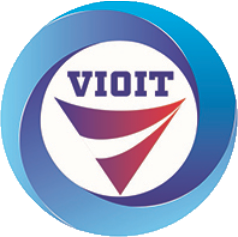
EXPERIENCES IN MANAGING CONTINGENT OF CADRES WORKING ON STATE MANAGEMENT OF ECONOMY IN SOME COUNTRIES
23:20 - 12/12/2022
Nguyen Manh Truong, Nguyen Diem Huong
Department of International Cooperation Ho Chi Minh National Academy of Politics
Although there are different approaches, basically, the concept of countries around the world shares one view rather in common, that is: improving the quality of each civil servant is a premise for building a contingent of cadres working on state management of economy. Building a strong contingent of cadres is a decisive factor for success in state management of economy and is a regular and urgent task of countries. Our Communist Party and State always put the management and development of human resources at the forefront of national development decisions. On that basis, the experiences in building and developing a contingent of cadres working on state management of economy in some countries such as Germany, China, Japan and Singapore in the article can bring valuable reference for Vietnam in today's global integration.
Keywords: Appointment, Cadre; China; Economy; Japan, Germany, Singapore; State management.
In the socialist-oriented market economy of Vietnam today, the contingent of cadres working on state management of economy has become an important force in the system of state management agencies on economy related as well as in the entire national sectors, plays an important role in the success or failure of the national economic development.
Economic related cadres are not only participants in the process of policy making, building mechanisms and institutions for economic management of the country, but also together with the State in establishing frameworks for the market operating effectively such as the legal system, economic development policies, etc., creating a favourable business environment in the Doi Moi (renovation) period, promoting industrialization and modernization of the country. They are the people who can collect the legitimate and reasonable aspirations of the people, act as a bridge between the State agencies and civilians, and then work together to find appropriate solutions and policies for developing the economy, to improve people's lives, and to create a favourable environment for all economic sectors in performance. In particular, in the process of state management of economy, cadres are the ones who discover the opportunities and challenges raised in the new situation. Being subject in State management, they find specific solutions to limit the risks and difficulties that may hinder the country's development momentum and seize opportunities to develop the country.
Being aware of the important role of leadership and cadres in state management of economy and in order to adapt to the needs of socio-economic development, the management and development of human resources in state agencies in the economic sector, so that quality and efficiency are always put on the forefront by the Party and the State in national building decisions, as President Ho Chi Minh affirmed: “Cadres are the root of all work, etc., success or failure of work depends on quality and capacity of cadres”. On that basis, the experience in building and developing the contingent of cadres working on state management of economy in the following countries can bring valuable references to Vietnam in developing resources of public manpower.
- China's experience
China is one of the countries that attach great importance to training the practical capacity of economic management cadres in practice, considering this as one of the three main qualities making up the quality of cadres. Therefore, those newly recruited into the agency must pass a compulsory class and must achieve good results in the final exam before undertaking the position. For incumbent economic managers, they each year must spend at least 120 hours to foster and update knowledge.
The selection and appointment of leading cadres and cadres working on state management of economy shall be based on 6 basic principles such as: the Party's cadre management principle; principle of merit and virtue; the principle of public recognition and respect for actual achievements; principle of publicity, equality, competition, selection of people with good capacity and quality; principle of centralized democracy and principle of compliance with the law.
- Singapore’s experience
Singapore always puts service quality, efficiency and effectiveness on the top and is always improving to adapt to the international environment and meet the development requirements of the country. Upholding the service quality of public agencies, Singapore believes that cadres are the key to success, so it always attaches importance to the human factor and respects talents.
The issue of training and fostering the contingent of state management cadres in economy is reflected first of all with the huge investment in training. The training and fostering of cadres in the direction that each person can develop their own talents; create a habit of lifelong learning, continuously learning so that each staff member has full qualities, capabilities and qualifications to serve their work well. Singapore builds a staff strategy expressed by short-term, long-term training plans, succession training, full-time, and distance. The cadre training process is conducted at five different levels: introductory training; basic training; advanced training; extensive training; continuity training. Thereby, cadres can not only do their jobs well, but also have opportunities to get promoted.
- Japan’s experience
The recruitment strategy and planning for the contingent of economic managers in Japan is very scientific, especially through the consideration and selection of leaders and managers through public, strict and careful recruitment exams. The contingent of cadres working on state management of economy shall be the most talented and elite people of the country. Those qualities and capabilities are created through rigorous recruitment exams, continuous training courses after recruitment. Up to now, Japan still keeps its tradition of using cadres for long-life and the salary increase and promotion system based on seniority. Every year, agencies conduct staff reviews, taking it as the basis for consideration of bonus and salary increases.
The Japanese government agencies apply the regime of annual salary increase for their cadres. Every five years, the government will adjust the salaries of cadres to match the salaries of the civil sector as well as to the development of the national economy. Thus, the salary of Japanese cadres is not always adjusted up, but at times it is adjusted down.
- Federal Republic of Germany’s experience
Germany is one of the few countries that trains state managers in economy at specialized schools for cadres. Cadre training is a regular activity, playing an important role in staff development, associated with the staff's working process.
In addition to the development of professional capacity and working skills, Germany's activities of developing staff working on state management of economy pay great attention to the issue of public service ethics, so as to professionally build a contingent of public cadres. As a rule, economic managers are fully responsible for all their actions and behaviours when performing public duties, and must comply with the Federal Anti-Corruption Code of Conduct.
In order to prevent and fight against corruption, in addition to stipulating the principle of publicity and transparency, the Government of the Federal Republic of Germany also implements the principle of cross-checking among departments, from specialized departments in each agency and internal audit agencies to the staff of personnel monitoring and evaluation. In addition to professional capacity, the focus on ethical quality has contributed to building a contingent of German economic managers who are truly talented and have good public service ethics.
To develop the cadre contingent, Germany is always interested in creating a favourable working environment with a good remuneration. Cadres and officers are guaranteed legal status, helping them to be independent and wholeheartedly committed to their duties. That preferential policy helps the staff to work devotedly and with high responsibility for the assigned tasks.
- Implications for Vietnam
Research on the development model of state management of economy from some of the countries mentioned above shows a number of experiences for Vietnam, which is reflected in the followings:
Firstly, the development of the contingent of cadres working on state management of economy shall be based on the principle of real talent, taking the capacity of cadres, results and efficiency in performing tasks and public duties as the basis for career development and promotion for cadres. When selecting and appointing cadres to perform state management of economy, they must be based on moral and talent standards, not with closeness or confidence. It requires the management, human resources of leading cadres to be honest, stemming from the interests of the people and the State, to correct bad expressions such as taking advantage of position to seek profit for oneself.
Secondly, training and fostering to develop economic managers based on the actual needs of agencies and individuals. High-quality training and retraining programs shall start from the assessment and identification of training and retraining needs, from the perspective of staff as well as from the perspective of each ministry, sector, or locality and the Government in general. Thus, the new training and retraining work is geared towards developing qualified and capable staff to meet the requirements and assigned tasks.
Thirdly, regularly develop and supplement remuneration policies in a timely manner to attract high-quality human resources. In which, special attention is paid to the salary policy and regime of cadres in accordance with the work results and performance; creating a favourable environment and positive working motivation so that cadres can work with peace of mind and stick to it for a long time, increasing responsibility at work.
Fourthly, test, promote and recommend cadres in a scientific way: Survey the basic knowledge, working skills, professional qualifications, capacity and working attitude of economic managers; implementing the examination and testing regimes to avoid the situation of using close or confident people as a priority, to ensure the quality of cadres.
In the trend of global integration, the Fourth Industrial Revolution along with the requirements of the process of developing a socialist-oriented market economy are putting Vietnam with new opportunities and challenges in the process of renovating organization and operation, ensuring its effectiveness and efficiency. Therefore, the development of a cadre contingent working on state management of economy with high qualifications, quality, capacity and reputation to meet the requirements and tasks is becoming more and more urgent, a central task and a key and core task of the Party and the State.
Reference
- Phan Anh He: State management of economy in international economic integration. Publishing House of Ho Chi Minh City University of Economics, 2017.
- Feng Jun, et al (2016): China's New Strategies for Governing the Country. Understanding Modern China Series. People's Publishing House. ACA Publishing Ltd.
- Jiang Haishan, Jiang Junjie, Yu Hongsheng, et al (2016): An Insider's Guide to the Inner Workings and Structure of the Chinese Government and Public Services. Understanding Modern China Series. People's Publishing House. ACA Publishing Ltd.
- Trinh Cu, Nguyen Duy Hung, Le Van Yen: Experience in building contingent of cadres in China. National Political Publishing House, 2009.
- Tran Thanh Cuong, Recruitment, training and fostering of cadres in the Federal Republic of Germany, Journal of Party Building No. 6/2016.
- Dang Khac Anh, German University of Administrative Sciences Speyer - Federal Republic of Germany, State Management Review, No. 207 (April 2013).
- S. Chiavo - Campo and P.S.A. Sundaram, Serving and Sustaining: Improving Public Administration in a Competitive World, Truth Politic Publishing House, H.2003, p. 515.
- National Academy of Public Administration, Comparative Administrative Textbook, Polytechnic Publishing House, H.2016, p.133.
- Le Minh Thong, Nguyen Danh Chau, Civil service system and reform trends of some countries in the world, Truth National Publishing House, H.2009.
- Basic Statute of Public Employees, Colección Separatas, Ministerio De La Presidencia, Madrid 2008.
- Ho Chi Minh. Full set. Volume 5. National Political Publishing House, 2004, p. 269, 240.
- Le Quan, Phung Xuan Nha. Some initial thoughts on applying competency-based governance to improving leadership quality in the public sector/Proceedings of the National Scientific Conference: Human Resource Development, August 2012.
- Ngo Quy Nham. Competency framework and application in human resource management. Workshop on “Capacity framework – application trends in the context of integration of HRA and FTU (Foreign Trade University), September 2015.
- Tran Anh Tuan. Perfecting the institution of cadre management in Vietnam in terms of development and international integration. National Economics University, 2007.
- Nigige Chigbod. Management as a Factor of Production and as an Economic Resource. International Journal of Humanities and Social Science, Vol. 4, No. 6. April 2014. Page.162 – 167. 2014.
16. Brown, David. “Globalization, Ethnicity and the Nation-State: The Case of Singapore”. Australian Journal International Affairs 52. No. 1. Page. 35 – 46. 1998.





